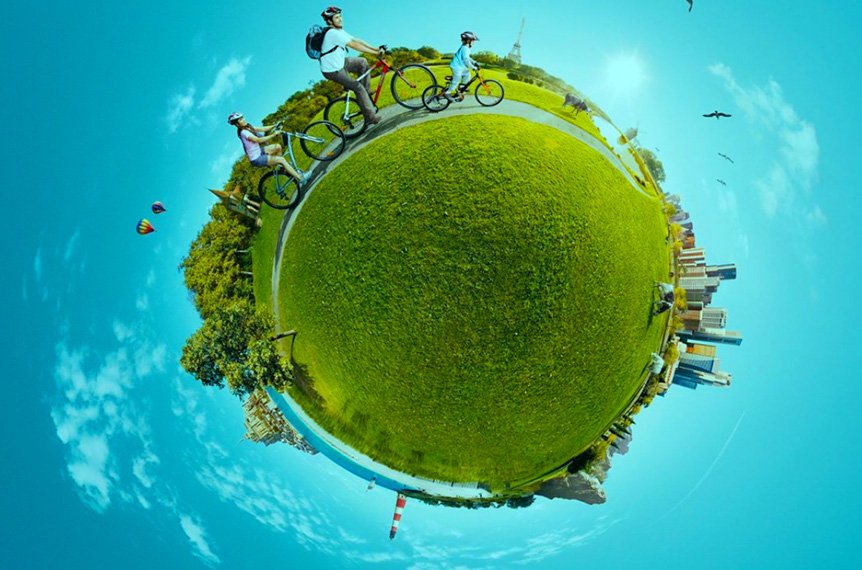From Ego-system to Eco-system Economies
Our lives are a source of constant change and disruptions. There are major global crisis that shake our societies every day. These include challenges with food, water, fuel, resources, poverty and finance. As explained by Otto Scharmer (2013), a senior lecturer at MIT, writing for Open Democracy, these disruptions provide the possibility for both personal and societal “renewal”. In order to take advantage of these possibilities, Scharmer explains that we need to consider the following three questions:
- Why do our actions collectively create results that so few people want?
- What keeps us locked into old ways of operating?
- What can we do to transform the root problems that keep us trapped in the patterns of the past?”
Scharmer published in 2013 the book Leading from the Emerging Future: From Ego-System to Eco-System Economies that is coauthored with Katrin Kaufer. He is also the founder of the Global Wellbeing and Gross National Happiness (GNH) Lab that aim to innovate beyond the GDP.
In the view of Scharmer the answers to the three questions set before mean that we have to look at economics differently. It is argued that we are disconnected from the ecological, social and spiritual. Our ecological divide creates problems like damage to the environment, and our divide from the social means that there are increasing problems with inequality, polarisation and fragmentation, as well as poverty. Our spiritual divide means that we face greater levels of depression and burnout than ever before, and our wellbeing is lower than it should be. In Scharmer’ thought provoking article all of this comes about due to the way that we think about economics.
A certain kind of economic framework that may be relevant at one time may not necessarily be so later. Each has a stage where it develops and grows and shapes policy making. Links can be made between different economic challenges and economic theories set about to address them through policy. For example, the great depression led to Keynesian macroeconomics, while the crises in the 1970s drove the monetarism theory of Milton Friedman, both of which drove policy and decision making for decades. According to Otto charmer and many other voices from the economics world although there was a major financial crisis in 2007 and 2008 economic thinking has not transformed in the way that it did after these other big crises. The economic downturn was an indicator that something was fundamentally wrong with the system, but nothing was done.
It is argued that externalities and consciousness drive the major shortfalls in current economic theory. The externalities such as the costs of economic activity have been a point of focus for researchers and policy makers. Attempts to deal with them have been initiated through regulation and the incentivising of corporate behaviour. Such approaches have led to corporate social responsibility and business ethics practices which focus on reducing environmental damage and exploitation of people. However, consciousness has not been addressed at all.
Capitalist economy as it stands is ego-centred and materialistic, focused on individual needs and decision making. However, what needs to happen is that people need to start caring and acting both for themselves, and others, and the whole ecosystem in which economic activities occur. If not, damage will continue to be done. Scharmer believes that there needs to be a change from a system that is ego based to a system that is eco based, where we all have better awareness. This requires the empathy to be able to understand what other stakeholders want and need, and having an “open mind, open heart and open will” to address problems. It is argued that this will help people to be able to see the world with a new perspective, letting go of old ideas.
In the following video, Otto Scharmer, explains this new perspective of looking at economics:
To achieve this, it is explained that individual inversion, relational inversion and institutional inversion are needed. Individual inversion is opening up our thinking so that we can create change for the future. Relational inversion is being able to collectively work together on problems through communication. Institutional inversion requires opening up current power systems of centralised hierarchies and decentralised competition to create ecosystems that all can benefit from.
We will need to be able to co-inspire one another, “co sense” the system with an open mind and heart, prototype or explore the future by creating change in the present and “co shaping” spaces to scale up the prototypes. This is a fundamental change which urgently needs change leaders that are prepared to drive it forward.
Read More:
why are mobile devices critical to a digital forensics investigation?

Paula Newton is a business writer, editor and management consultant with extensive experience writing and consulting for both start-ups and long established companies. She has ten years management and leadership experience gained at BSkyB in London and Viva Travel Guides in Quito, Ecuador, giving her a depth of insight into innovation in international business. With an MBA from the University of Hull and many years of experience running her own business consultancy, Paula’s background allows her to connect with a diverse range of clients, including cutting edge technology and web-based start-ups but also multinationals in need of assistance. Paula has played a defining role in shaping organizational strategy for a wide range of different organizations, including for-profit, NGOs and charities. Paula has also served on the Board of Directors for the South American Explorers Club in Quito, Ecuador.












